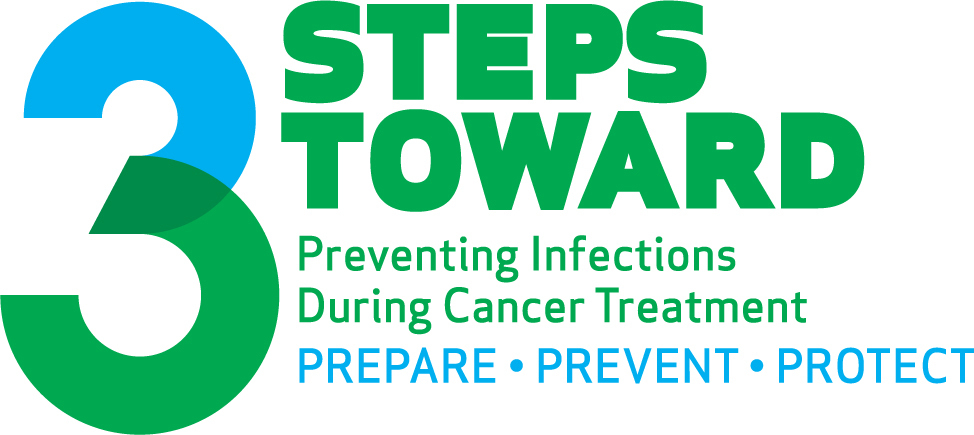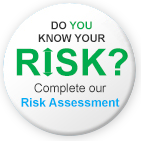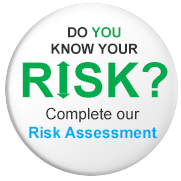
Health Tip Sheet
Vaccinations and the Flu
Flu Symptoms
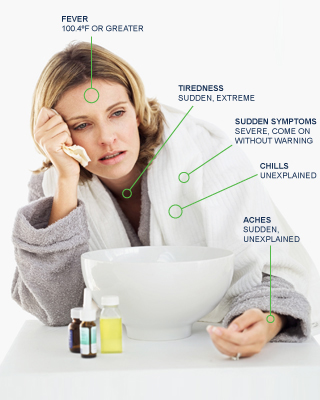 The “flu” is a term used when talking about a number of different influenza viruses. Because you have cancer, you are at a higher risk for getting complications from the flu (which could result in a hospital stay). Flu-like symptoms can also be a sign of an extremely serious infection that is not the flu and could result in a hospital stay or even death.
The “flu” is a term used when talking about a number of different influenza viruses. Because you have cancer, you are at a higher risk for getting complications from the flu (which could result in a hospital stay). Flu-like symptoms can also be a sign of an extremely serious infection that is not the flu and could result in a hospital stay or even death.
If you get any of the following sign or symptoms, call your doctor immediately:
- Temperature of 100.4ºF (38ºC) or higher
- Headache
- Body aches
- Chills
- Fatigue
- Cough
- Sore throat
- Runny or stuffy nose
- Vomiting
- Diarrhea
The Flu Vaccine
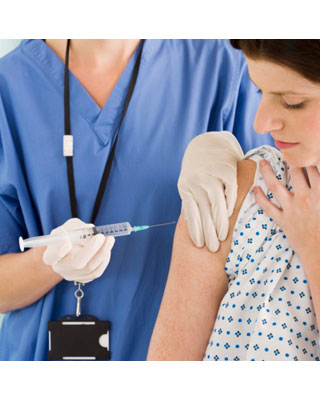 It is common for people getting chemotherapy to have a weakened immune system. The Centers for Disease Control and Prevention (CDC) recommends that people with cancer get the seasonal flu shot as soon as it is available. This will help you to avoid getting the flu. Talk to your doctor or nurse about when to get a flu shot.
It is common for people getting chemotherapy to have a weakened immune system. The Centers for Disease Control and Prevention (CDC) recommends that people with cancer get the seasonal flu shot as soon as it is available. This will help you to avoid getting the flu. Talk to your doctor or nurse about when to get a flu shot.
Here are additional things you can do to protect yourself against getting the flu:
- Be sure to ask for the seasonal flu shot, not the nasal spray flu vaccine. The flu shot is made up of inactivated viruses (killed) and the nasal spray vaccines are made up of live viruses. The flu shot is safer for those with a weakened immune system.
- Ask your doctor if you should also get a pneumococcal pneumonia shot. The flu can lead to more serious conditions, such as pneumonia, which can be life threatening to persons with a weakened immune system. This shot will protect against certain types of pneumonia and meningitis.
- Develop good health habits to stop the spread of germs.
- Cover your nose and mouth with a tissue when you cough or sneeze. Throw the tissue in the trash after you use it.
- Wash your hands often with soap and water. If soap and water are not available, use an alcohol-based hand sanitizer.
- Avoid touching your eyes, nose, or mouth. Germs spread this way.
- Try to avoid people who appear sick.
- Avoid crowds. If you do go out, try to avoid situations where you might come into close contact with people who may be sick. For example, eating at a restaurant or going to a movie is OK, but you should try to avoid a situation where you are in a crowd.
Flu Treatments
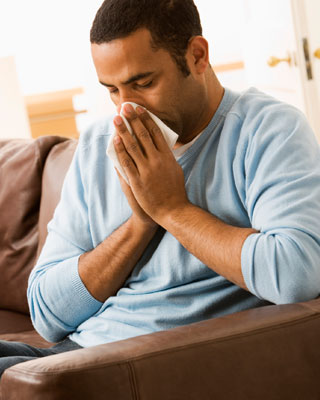 If you start to have flu-like symptoms, the following tips may be helpful:
If you start to have flu-like symptoms, the following tips may be helpful:
- Contact your doctor or nurse IMMEDIATELY (within the hour) and follow his or her instructions. Flu-like symptoms can be a sign of a very serious infection that is not flu but that could result in hospitalization or even death.
- Take flu antiviral drugs if your doctor prescribes them.
- If you need to go to the doctor’s office or emergency room, it is VERY IMPORTANT to let the staff know right away that you are undergoing chemotherapy and think you may have the flu. This is because flu-like symptoms can also be the sign of a serious infection and you shouldn’t sit in the waiting room for a long time. Infections can get very serious the longer they go untreated.
- Check with your doctor before taking any medicine. This includes acetaminophen (such as Tylenol®), or ibuprofen (such as Advil®).
- Cover your mouth with a tissue when you cough or sneeze.
If your doctor diagnoses you with the flu, you should:
- Try to stay home and away from others as much as possible to keep from making them sick (at least 24 hours after your fever is gone). This means that you may have to stay home from work or school, cancel travel plans, and avoid shopping and social events. This does NOT include going out for medical care or other necessities.
